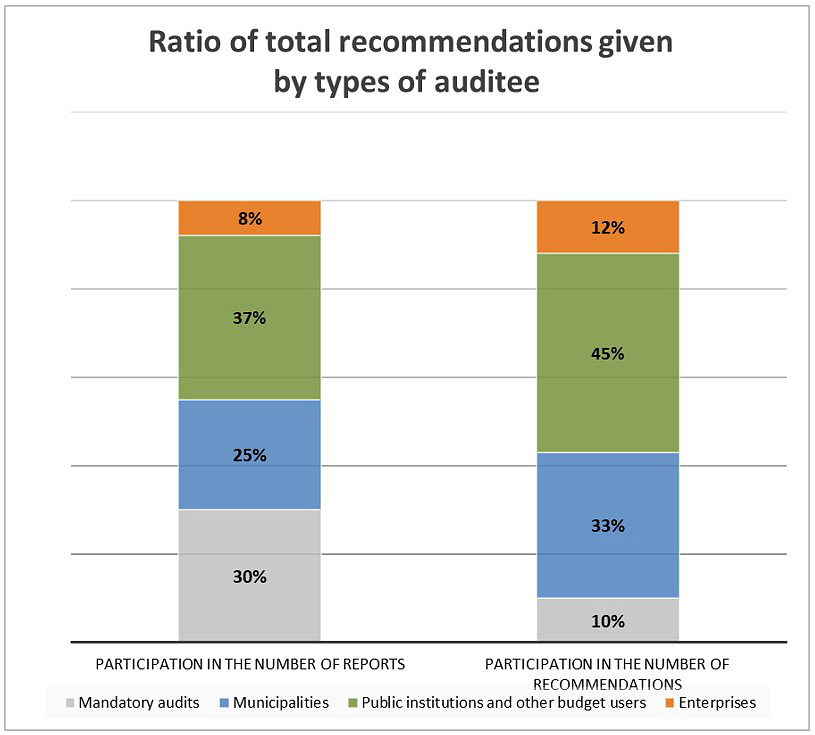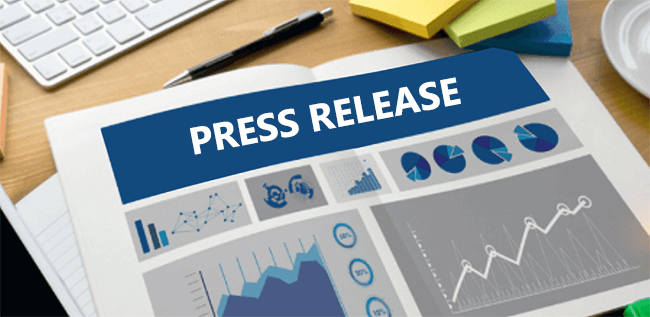The Supreme Audit Office of the Republic of Srpska public sector has completed the cycle of audits for 2023, in which 91 engagements of financial audits and 10 engagements of performance audits were carried out. All final reports were delivered to audited entities and competent institutions and were published on the website of the Supreme Audit Office.
In the structure of 86 audit reports of financial audits that were carried out in 2023, refer to the audited period 01.01-31.12.2022. year, 37 reports refer to mandatory audits under the Law on Auditing the Public Sector of the Republic of Srpska and budget users, 28 to public institutions and companies, and 21 to local self-government units.
In addition to the aforementioned audits, four engagements were carried out to check the status of financial audit recommendations, and one engagement to audit the financial statements of the State Audit Institution of Serbia, which was adopted by the National Assembly of the Republic of Serbia.
Through 86 financial audit reports, 27 unqualified audit opinions were given for financial statements, a qualified opinion for 54 reports adverse opinions were expressed to five subjects. For compliance with laws and other regulations, an unqualified audit opinion was given for 22 entities, a qualified opinion for 62 reports, and two adverse opinions.
In the financial audit field, 891 recommendations were issued for the elimination of observed irregularities, of which 440 refer to financial statements and 451 to compliance. The status of verified financial audit recommendations is as follows: 55% of fully implemented recommendations, 17% partially implemented, 26% of recommendations that were not implemented, while 2% of recommendations were not implemented due to changed circumstances (such as changes in legal regulations and the like). The largest number of recommendations was given to public institutions and other budget users whose financial statmenst are not subject to mandatory audits (about 45% of all recommendations given). Still, the participation of these entities in the total number of audit engagements is the highest (37%). Local self-government units participated with 25% in the total number of financial audit engagements, and almost every third recommendation was sent to them. Subjects of mandatory audits were sent the smallest number of recommendations, only 10%, although they participated in the total number of reports with 30%.

By choosing the areas of audit and topics that are the subject of the performance audit, the Supreme Audit Office is in the function of achieving the general goals established by the strategies and policies of the Republic of Srpska and in the function of improving general and financial management in the public sector of the Republic of Srpska. In order to fulfill the general goal of the performance audit, the audit process includes several public sector institutions that have certain roles, competencies, and responsibilities related to the processes and activities that are the subject of the audit for a longer period.
Under the Annual Plan of Audits, six performance audits were conducted, which covered 103 public sector institutions and resulted in a total of 46 recommendations.
The performance audit “Measures and activities for gender equality of the institutions of the Republic of Srpska” was realized in partnership with “UN Women” as a parallel performance audit between five supreme audit institutions within the framework of SDG 5. “Achieving gender equality and empowering all women and girls” from Agenda 2030 for sustainable development. The Supreme Audit Office of the Republic of Srpska public sector included in this performance audit sub-goals 5.5 “Ensure full and effective participation of women and equal opportunities for leadership at all levels of decision-making in political, economic and public life” and 5.c “Adopt and strengthen good policies and applicable legislation to promote gender equality and the empowerment of all women and girls at all levels”.
Other performance audit reports covered the following topics:
– Municipal waste management;
– Management of tourist organizations in the Republic of Srpska;
– Management of drug stocks in health centers;
– Protection of consumer rights;
– Prevention of peer violence in the Republic of Srpska. Four follow-up reviews of the implementation of the recommendations from the performance audit reports were also carried out, which covered 58 public sector institutions and checked the status of 26 given recommendations. It was determined that 23% of recommendations were fully implemented, 58% were partially implemented, 11% of recommendations were being implemented, and 8% of recommendations were not implemented.



